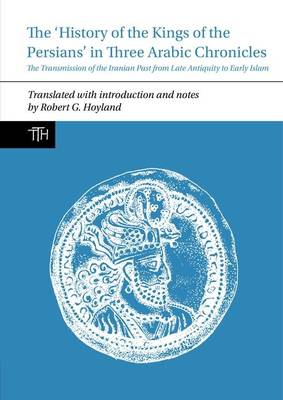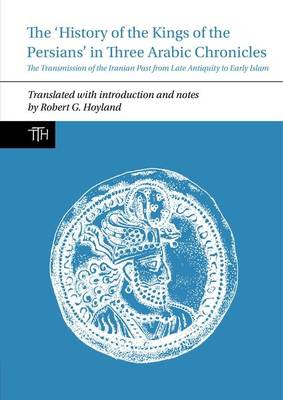
- Afhalen na 1 uur in een winkel met voorraad
- Gratis thuislevering in België vanaf € 30
- Ruim aanbod met 7 miljoen producten
- Afhalen na 1 uur in een winkel met voorraad
- Gratis thuislevering in België vanaf € 30
- Ruim aanbod met 7 miljoen producten
Zoeken
The History of the Kings of the Persians in Three Arabic Chronicles
The Transmission of the Iranian Past from Late Antiquity to Early Islam
€ 111,95
+ 223 punten
Omschrijving
This book translates the sections on pre-Islamic Persia in three Muslim Arabic chronicles, those of Ahmad al-Ya'qubi (d. ca. 910), 'Ali al-Mas'udi (d. ca. 960) and Hamza al-Isfahani (d. ca. 960s). Their accounts, like those of many other Muslim historians on this topic, draw on texts that were composed in the period 750-850 bearing the title 'The History of the Kings of the Persians'. These works served a growing audience of well-to-do Muslim bureaucrats and scholars of Persian ancestry, who were interested in their heritage and wished to make it part of the historical outlook of the new civilization that was emerging in the Middle East, namely Islamic civilization. This book explores the question of how knowledge about ancient Iran was transmitted to Muslim historians, in what forms it circulated and how it was shaped and refashioned for the new Perso-Muslim elite that served the early Abbasid caliphs in Baghdad, a city that was built only a short distance away from the old Persian capital of Seleucia-Ctesiphon.
Specificaties
Betrokkenen
- Uitgeverij:
Inhoud
- Aantal bladzijden:
- 200
- Taal:
- Engels
- Reeks:
- Reeksnummer:
- nr. 69
Eigenschappen
- Productcode (EAN):
- 9781786941466
- Verschijningsdatum:
- 4/07/2018
- Uitvoering:
- Hardcover
- Formaat:
- Genaaid
- Afmetingen:
- 150 mm x 211 mm
- Gewicht:
- 362 g

Alleen bij Standaard Boekhandel
+ 223 punten op je klantenkaart van Standaard Boekhandel
Beoordelingen
We publiceren alleen reviews die voldoen aan de voorwaarden voor reviews. Bekijk onze voorwaarden voor reviews.










